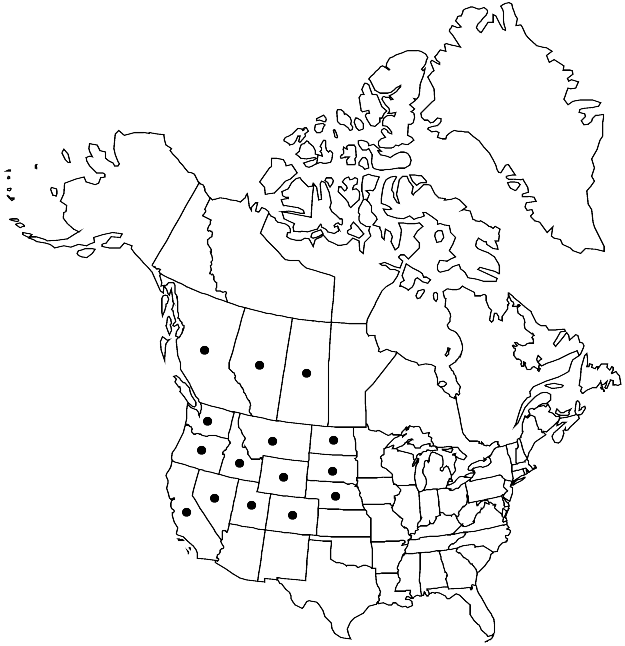Difference between revisions of "Alyssum desertorum"
Denkschr. Kaiserl. Akad. Wiss., Wien. Math.-Naturwiss. Kl. 51: 302. 1886.
FNA>Volume Importer |
imported>Volume Importer |
||
| (One intermediate revision by the same user not shown) | |||
| Line 6: | Line 6: | ||
|place=51: 302. 1886 | |place=51: 302. 1886 | ||
|year=1886 | |year=1886 | ||
| + | }} | ||
| + | |special_status={{Treatment/ID/Special_status | ||
| + | |code=W | ||
| + | |label=Weedy | ||
| + | }}{{Treatment/ID/Special_status | ||
| + | |code=I | ||
| + | |label=Introduced | ||
}} | }} | ||
|basionyms= | |basionyms= | ||
| Line 23: | Line 30: | ||
|elevation=800-2000 m | |elevation=800-2000 m | ||
|distribution=Alta.;B.C.;Sask.;Calif.;Colo.;Idaho;Mont.;Nebr.;Nev.;N.Dak.;Oreg.;S.Dak.;Utah;Wash.;Wyo.;Europe;c Asia. | |distribution=Alta.;B.C.;Sask.;Calif.;Colo.;Idaho;Mont.;Nebr.;Nev.;N.Dak.;Oreg.;S.Dak.;Utah;Wash.;Wyo.;Europe;c Asia. | ||
| + | |introduced=true | ||
|tables= | |tables= | ||
|references= | |references= | ||
| Line 45: | Line 53: | ||
|publication title=Denkschr. Kaiserl. Akad. Wiss., Wien. Math.-Naturwiss. Kl. | |publication title=Denkschr. Kaiserl. Akad. Wiss., Wien. Math.-Naturwiss. Kl. | ||
|publication year=1886 | |publication year=1886 | ||
| − | |special status= | + | |special status=Weedy;Introduced |
| − | |source xml=https:// | + | |source xml=https://bitbucket.org/aafc-mbb/fna-data-curation/src/2e0870ddd59836b60bcf96646a41e87ea5a5943a/coarse_grained_fna_xml/V7/V7_320.xml |
|tribe=Brassicaceae tribe Alysseae | |tribe=Brassicaceae tribe Alysseae | ||
|genus=Alyssum | |genus=Alyssum | ||
Latest revision as of 22:32, 5 November 2020
Annuals; canescent throughout except fruit, trichomes appressed, 8–20-rayed. Stems simple or few to several from base, erect, ascending, or decumbent, (0.2–)0.5–1.8(–2.8) dm. Cauline leaves subsessile or (proximal) attenuate to petiole-like base (to 0.5 cm); blade linear to oblanceolate-linear, (0.3–)0.5–2.5(–3) cm × (0.5–)1–3(–4) mm (gradually smaller distally), base attenuate, apex acute. Fruiting pedicels ascending or subdivaricate, straight, stout, (1–)1.5–3.5(–4.5) mm, trichomes uniformly stellate. Flowers: sepals oblong, 1.4–1.8(–2) × 0.4–0.5 mm, stellate-pubescent; petals pale yellow, oblanceolate, 2–2.5 × 0.5–0.6 mm, base attenuate, apex obtuse or retuse, sparsely stellate-pubescent abaxially; filaments: median pairs not toothed, gradually expanded from apex to narrowly winged base, lateral pair with broadly winged appendage apically notched into 2 teeth, 1–1.8(–2) mm; anthers ovate, 0.1–0.2 mm. Fruits orbicular, 2.5–4(–4.5) mm diam., apex shallowly emarginate, usually glabrous; valves uniformly inflated at middle, broadly flattened at margins, often glaucous, rarely sparsely pubescent (when young); ovules 2 per ovary; style 0.3–0.7 mm, glabrous. Seeds ovoid, slightly compressed, 1.2–1.5 × 0.9–1.1 mm, margined or not. 2n = 32.
Phenology: Flowering Apr–Jul.
Habitat: Deserts, rocky areas, disturbed sites, roadsides, fields, meadows, sagebrush flats
Elevation: 800-2000 m
Distribution

Introduced; Alta., B.C., Sask., Calif., Colo., Idaho, Mont., Nebr., Nev., N.Dak., Oreg., S.Dak., Utah, Wash., Wyo., Europe, c Asia.
Discussion
Selected References
None.